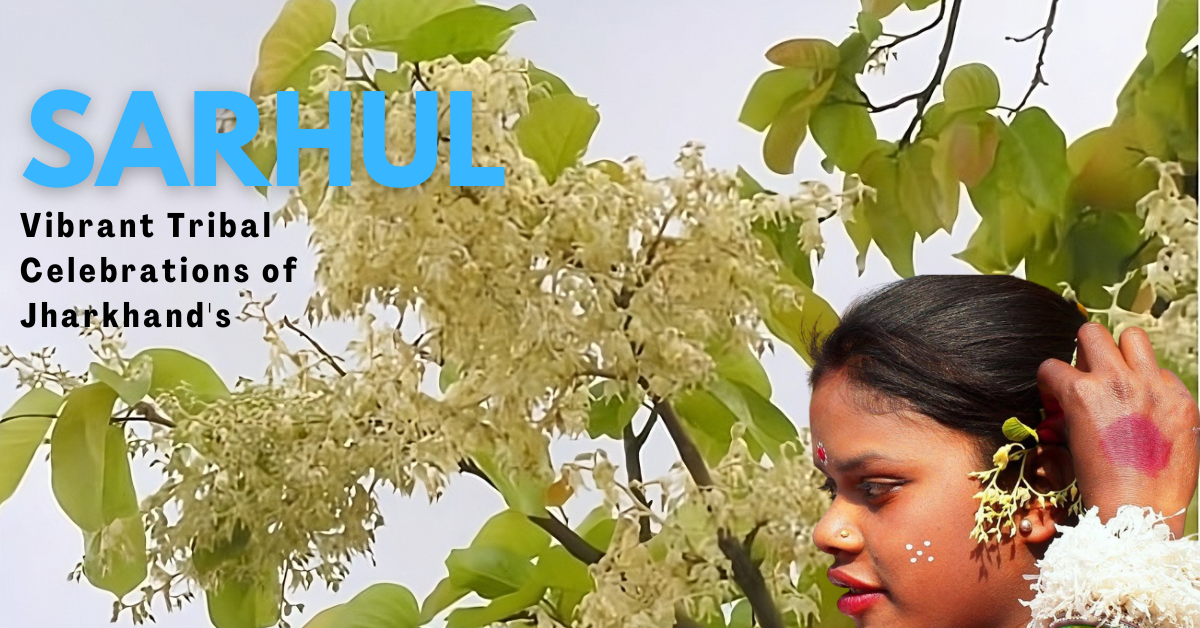Sarhul Festival: Celebrating Nature, Culture, and Adivasi Identity
Why in the News ?
The Sarhul Festival is being celebrated across Jharkhand and Chhotanagpur, marking the arrival of spring and the new year. The festival has gained political significance as Adivasi groups demand a separate Sarna religion column in India’s caste census.
Significance of the Sarhul Festival:
- Sarhul, meaning “worship of the Sal tree,” is a major festival celebrated by Adivasi communities in Jharkhand and the Chhotanagpur region.
- The festival symbolizes the union of the Sun and Earth and marks the arrival of spring and the new year.
- Sal trees (Shorea robusta) are revered as the abode of Sarna Maa, the village deity who protects against natural calamities.
- The pahan (village priest) represents the Sun, while his wife, the pohen, symbolizes the Earth. This union signifies the cycle of life and fertility.
Rituals and Celebrations
- Sarhul is a three-day festival held at Sarna Sthals (sacred groves) near villages.
- On the first day, homes and Sarna Sthals are decorated with red and white flags, and the pahan collects water for rituals after a strict fast.
- On the second day, the deity is offered Sal flowers, and a rooster is sacrificed to seek prosperity, safety, and a good harvest.
- Villagers perform traditional dances and songs, including Jadur, Gena, and Por Jadur.
- On the final day, a community feast is held, featuring handia (rice beer) and traditional delicacies.
Evolution and Political Significance
- Traditionally, Sarhul centered on hunting and agriculture, reflecting the Adivasis’ connection to nature.
- Over the last 60 years, Sarhul processions, particularly from Hatma to Siram Toli in Ranchi, have become a symbol of Adivasi identity and a platform for political assertion.
- Adivasi groups have demanded a separate Sarna religion column in India’s caste census, highlighting their distinct identity.
- However, some RSS-affiliated groups argue that Adivasis are part of Hinduism, while Adivasi leaders emphasize their unique traditions.




